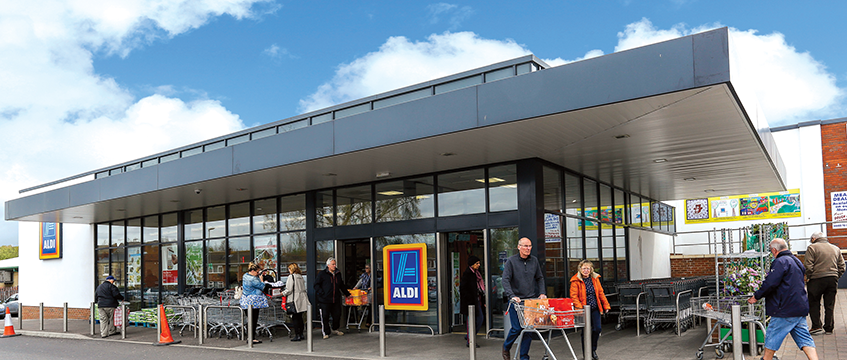Investment in supermarket properties tumbled by 40% last year, from £1.4bn to just over £1bn, according to figures from Colliers International.
The number of deals decreased by 17% to 44, with average net yield achieved totalling 5.02%, largely on a par with 2017, when yields averaged 5.05%.
James Watson, head of UK retail capital markets at Colliers, said that the decline in transaction volume was due largely to a lack of portfolio deals.
The drop off in transactions is characteristic of the market, which since its peak in 2013, when £1.8bn of supermarkets were traded, has traced a bumpy total investment line. Transactions were down in 2014, up again in 2015, and down again in 2016.
The UK institutions remained the biggest buyers of supermarket assets last year, accounting for 44% of acquisitions, up from 34% in 2017 and 16% in 2016. Retailers were only responsible for 13% of purchases, well down on the high-water mark of 45% in 2016.
However, there is a new type of buyer in town, one that Colliers expects to become more dominant in the future – the dedicated supermarket investment vehicle. It singles out Atratro’s Supermarket Income REIT, which spent £104m on supermarkets last year, as one to watch.
The biggest seller of supermarkets in 2018 was the property sector, accounting for almost half of all sellers.
Despite the declining market shares of the traditional supermarkets – Tesco down by 1.3% and Asda down by 1.5% over the four-year period to the end of 2018 – and recent headline-grabbing layoff figures from Tesco, Colliers was confident that the investment outlook for the sector remained strong.
Confidence in grocery
The agent said that confidence had returned to the grocery sector and trading remained resilient despite the ongoing woes in the wider retail market.
However, rental growth, it said, was “still a long way off in all but the most constrained/affluent locations” and that this could start to impact investment decisions.
“Not surprisingly, landlords show no signs of accepting lower rents, while at the same time the occupiers have no desire to extend leases – their only real bargaining chip,” says the report. “This must change.”
And with online disruptor Amazon touted to be planning 200 UK convenience stores, Colliers predicted a “straight fight” between the e‑commerce giant and domestic operators in terms of preferred trading environment, in a “seismic” event for grocery retailing.
“Even if Amazon does enter the market, it looks like its offer will be predicated on physical stores rather than a predominantly online offer,” Watson said. “As such, this may, in time, create a further pipeline of investable assets.”
To send feedback, e-mail pui-guan.man@egi.co.uk or tweet @PuiGuanM or @estatesgazette











